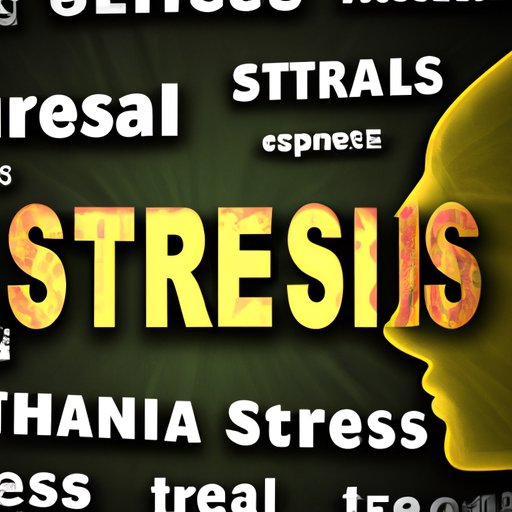
Can Stress Cause Hallucinations? Exploring the Link Between Stress and Perception
Stress can be a pervasive force in our lives, affecting everything from our physical health to our mental state. One of the lesser-known effects of stress is its potential to cause hallucinations. While this may seem like a rare occurrence, in reality, stress-induced hallucinations are more common than you may think. In this article, we will explore the link between stress and hallucinations, and how managing stress can help prevent these unsettling experiences.
The Unseen Effects of Stress: How It Can Cause Hallucinations
Stress is a natural response to perceived threats or danger. When we experience stress, our bodies release hormones such as cortisol and adrenaline, preparing us for fight or flight. While this response can be helpful in short bursts, chronic stress can have negative effects on both our physical and mental health.
The impact of stress on the brain can be particularly concerning. When we are under stress, the prefrontal cortex, which is responsible for decision-making and problem-solving, can be suppressed, while the amygdala, which processes emotions, can become more active. This can cause our perception of reality to become distorted, leading to hallucinations.
Breaking the Illusion: Unraveling the Link Between Stress and Hallucinations
Hallucinations can take many forms, from auditory hallucinations, such as hearing voices or sounds, to visual hallucinations, such as seeing things that aren’t there. While the causes of hallucinations can vary, stress is a common trigger. Scientists believe that stress can lead to hallucinations by altering the brain’s chemistry and perception of reality.
Stress has also been linked to a variety of mental health problems, including anxiety, depression, and PTSD, which can all increase the risk of experiencing hallucinations. While not everyone who experiences stress will have hallucinations, those who are already vulnerable to mental health problems may be more likely to have these experiences.
The Mind Under Pressure: Understanding the Relationship Between Stress and Hallucinations
To understand how stress can cause hallucinations, it is helpful to look at the role of the amygdala in the stress response. The amygdala is the part of the brain that processes emotions, and during times of stress, it can become overactive, leading to the suppression of the prefrontal cortex. This can cause our perception of reality to become distorted, leading to hallucinations.
Additionally, stress can affect other areas of the brain that are involved in perception and cognition. Studies have shown that chronic stress can lead to changes in brain structure, particularly in the hippocampus, which is responsible for memory and learning. These changes can lead to difficulties with perception and cognitive function, which can contribute to the experience of hallucinations.
Beyond the Breaking Point: Could Daily Stress Trigger Hallucinations?
While extreme stress is often associated with hallucinations, even everyday stressors can contribute to the experience of these unsettling phenomena. Examples of stressful situations that can cause hallucinations include sleep deprivation, sensory deprivation, and social isolation. These experiences can be particularly challenging for those who are already vulnerable to mental health problems.
To prevent stress-induced hallucinations, it is important to manage stress effectively. This may include practicing relaxation techniques like meditation or deep breathing, getting plenty of sleep, and seeking support from friends and family. In some cases, therapy or medication may be necessary to help manage stress.
Stressed to the Max: Exploring the Possibility of Hallucinations Due to Stress
While stress can cause temporary hallucinations, extreme or chronic stress can have more serious consequences for our mental health. Studies have shown that chronic stress can lead to a heightened risk of mental health problems, including psychosis and schizophrenia. These conditions can be particularly challenging, often requiring ongoing treatment and support to manage.
If you are experiencing stress-induced hallucinations or are concerned about your mental health, it is important to seek help from a mental health professional. They can help you identify the root cause of your symptoms and provide support and treatment options tailored to your needs.
Conclusion
Stress is a pervasive force in our lives, with the potential to cause a range of physical and mental health problems. While stress-induced hallucinations may seem rare, they are a relatively common experience, particularly for those who are already vulnerable to mental health problems. To prevent these unsettling experiences, it is important to manage stress effectively, by practicing relaxation techniques, getting enough sleep, and seeking support when needed.
If you are experiencing stress-induced hallucinations or are concerned about your mental health, remember that help is available. With the right support and treatment, you can manage your symptoms and enjoy a healthier, happier life.





